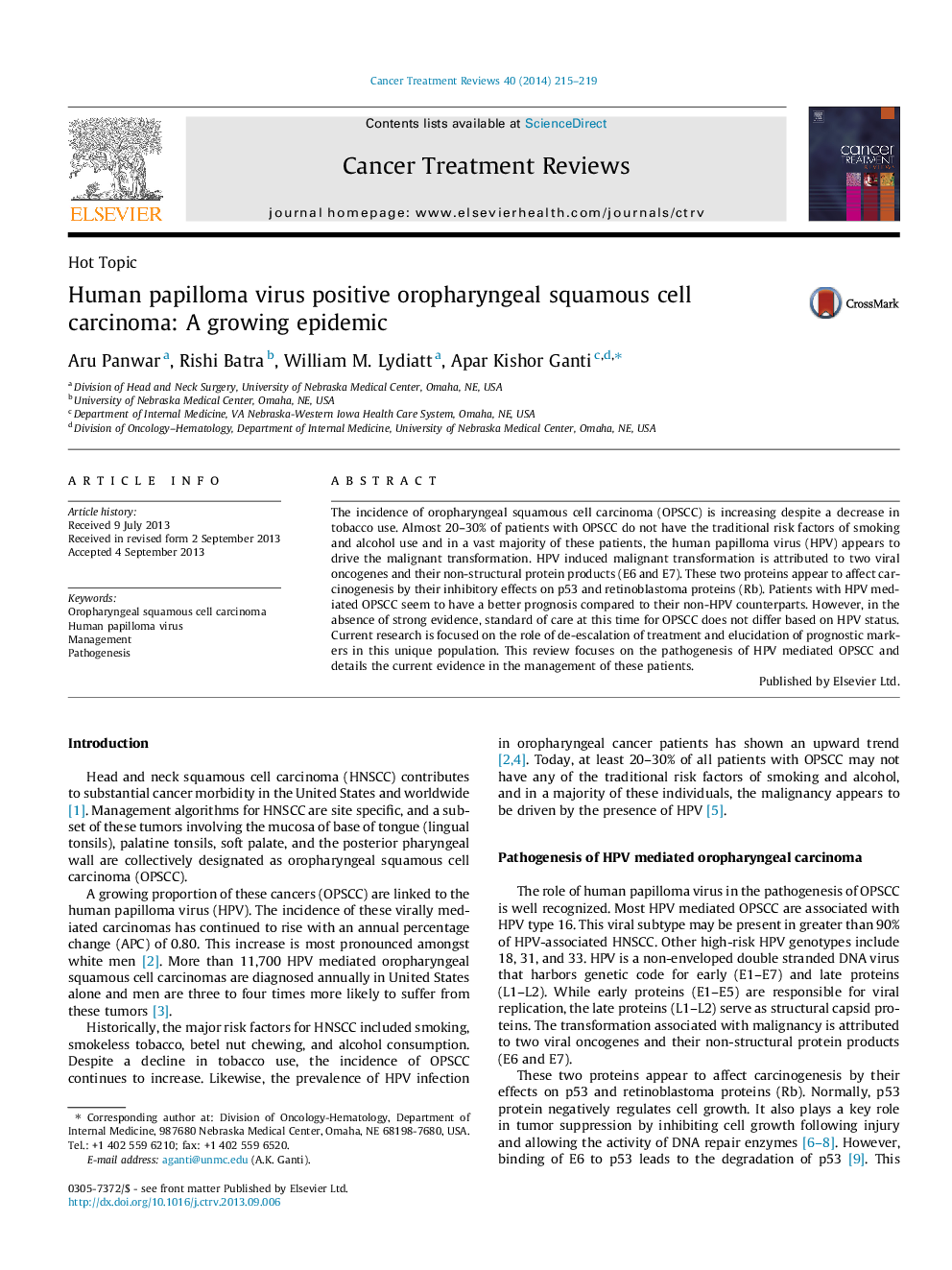| Article ID | Journal | Published Year | Pages | File Type |
|---|---|---|---|---|
| 6190572 | Cancer Treatment Reviews | 2014 | 5 Pages |
The incidence of oropharyngeal squamous cell carcinoma (OPSCC) is increasing despite a decrease in tobacco use. Almost 20-30% of patients with OPSCC do not have the traditional risk factors of smoking and alcohol use and in a vast majority of these patients, the human papilloma virus (HPV) appears to drive the malignant transformation. HPV induced malignant transformation is attributed to two viral oncogenes and their non-structural protein products (E6 and E7). These two proteins appear to affect carcinogenesis by their inhibitory effects on p53 and retinoblastoma proteins (Rb). Patients with HPV mediated OPSCC seem to have a better prognosis compared to their non-HPV counterparts. However, in the absence of strong evidence, standard of care at this time for OPSCC does not differ based on HPV status. Current research is focused on the role of de-escalation of treatment and elucidation of prognostic markers in this unique population. This review focuses on the pathogenesis of HPV mediated OPSCC and details the current evidence in the management of these patients.
